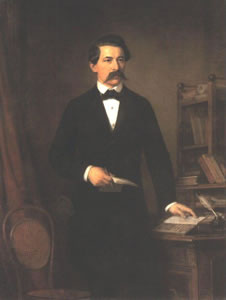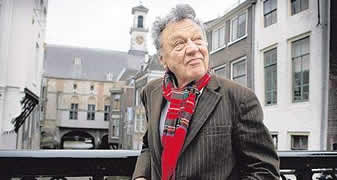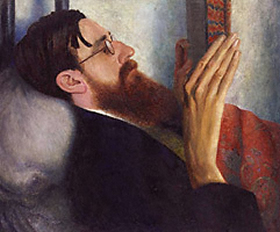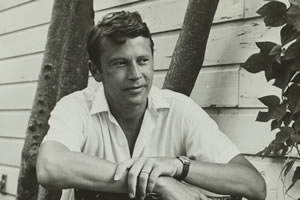De Hongaarse dichter János Arany werd geboren op 2 maart 1817 in Nagyszalonta. Zie ook alle tags voor János Arany op dit blog.
Cosmopolitan poetry
I have no shame, no regret
That born Hungarian, I write
As one, that I can never let
My words beyond this soil take flight.
No ‘Wonder of two worlds,’ my song
If charm it has, is due to them,
My people; I am theirs, belong
To one land wholly, root and stem.
Let tongues of the mighty propagate
Their own language, sovereignty
Their god, a roaring flood in spate
That washes all, destructively.
But let the poet of a small nation
Placed in destruction’s very path,
Find at home his true station,
Death, else, the aftermath.
Or is our glory here so small
It needs must sink into the grave
Along with the nation? Do you call
Us inferior, that neighbours gave
No heed to us? Is there no test
Worthy of our strength at home,
Subject for song, no native quest?
Must we crave Albion’s loan?
Be a „world poet;” if you can,
Stir up the whole lazy west.
The cradle that rocked me Hungarian
Is one that I must still call blessed.
A thousand threads bind me – I deal
With motherland, with this one spot.
I sing of no abstract ideal,
Voice such, I’d rather not.
And what becomes of this sad mistake?
His race, his nationality
Have left a mark he cannot shake:
Will the great poet despise them, he?
I have scanned the pages of the best,
Contemporaries of mine as well;
All were mirrors, each confessed
People and land he alone could tell.
Pray do not think that a people stricken
Are extinguished, blotted out suddenly,
While poet and homeland in harmony quicken
With a national, endless melody.
And were you to picture some future danger,
Or should its semblance in fact appear,
Would you desert like any stranger
The holy flag, its peril near?
Oh, with a worthier lute to sing
As Homer did, a land reborn,
No longer a poet sorrowing
For a land of griefs now left forlorn.
But should its fate indeed be death,
Then let me be an Ossian dwelling
In a place that fades, no mongrel breath
Intoning, but a live song swelling.
Vertaald door Madeline Mason

János Arany (2 maart 1817 – 22 oktober 1882)
Portret door Miklós Barabás, 1894



